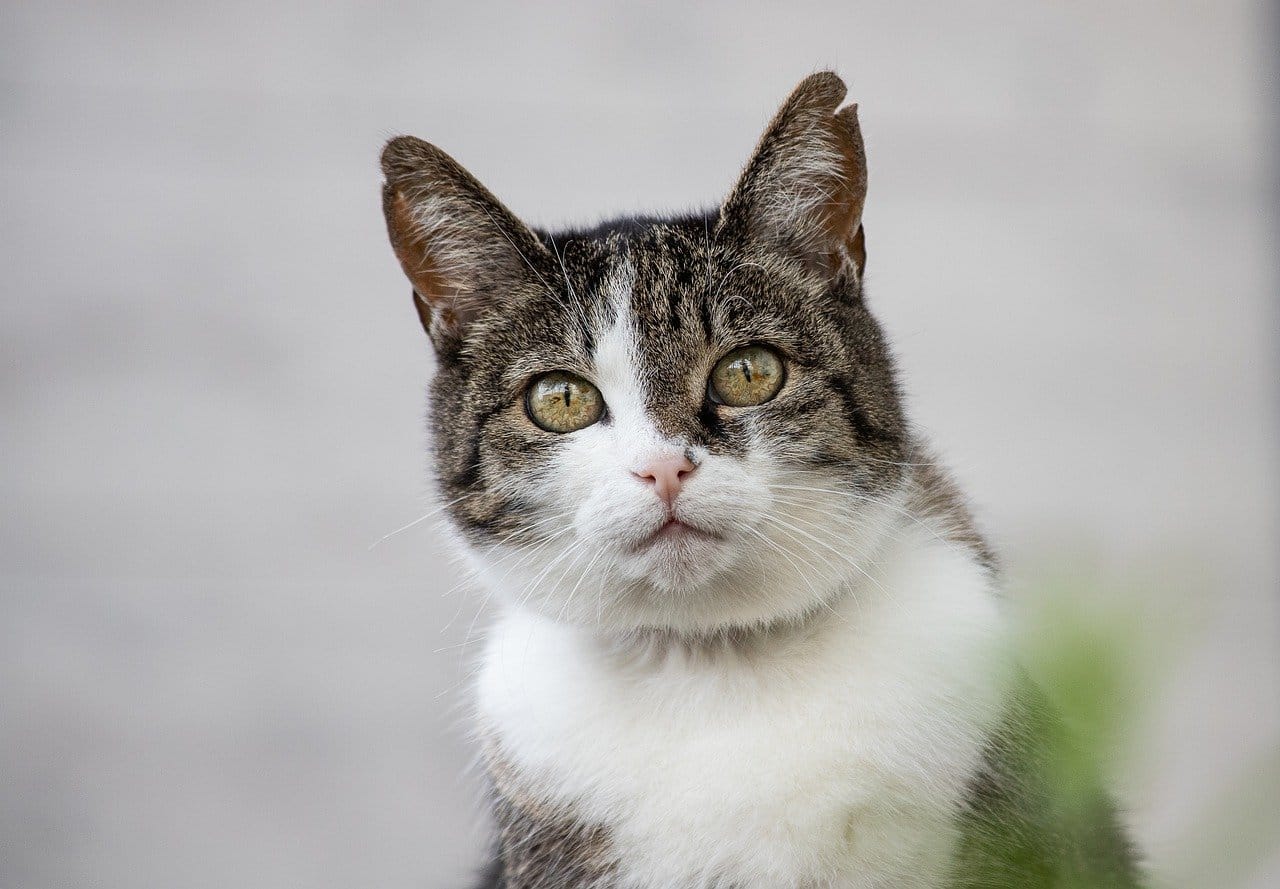How Often Do Kittens Pee? Find out the normal Kitten Pee Frequency & learn what’s considered healthy urination habits for your little one. Get expert tips on How Often Should Kittens Pee to ensure their bladder health!
How Often Do Kittens Pee? A Comprehensive Guide to Kitten Urination
Understanding your kitten’s bathroom habits is crucial for their health and well-being. One of the most common questions new kitten owners ask is, How Often Do Kittens Pee? This seemingly simple question actually has a nuanced answer, depending on several factors. This guide will delve into the typical kitten pee frequency, what’s considered normal, and when you should seek veterinary attention. We’ll also cover related topics like how often kittens should pee, and what might influence their bathroom schedule.
Understanding Normal Kitten Pee Frequency
There’s no single magic number for how many times a day a kitten should urinate. A kitten’s How Often Do Kittens Pee depends on various factors including age, diet, hydration, and overall health. However, we can establish some general guidelines. Very young kittens (under 8 weeks old) will need to urinate more frequently than older kittens. Think of it like human babies – they need diaper changes more often than toddlers.
Generally, a healthy kitten will urinate at least once every 6-8 hours, often more frequently. Some kittens may urinate as often as every 2-4 hours, especially after drinking or eating. This is especially true for kittens under four months of age. This high frequency is primarily due to their high metabolism and their small bladder capacity relative to their body size.
If your kitten is drinking plenty of water (learn more about kitten hydration needs at this helpful guide), you should expect more frequent urination. This is a good thing! It signals that your kitten is properly hydrated. Conversely, if your kitten is not drinking enough water, its urination will likely be less frequent, and this can be a serious issue. Always ensure fresh, clean water is readily available.
Factors Affecting Kitten Pee Frequency
Several factors contribute to variations in How Often Should Kittens Pee. Understanding these helps you better interpret your kitten’s bathroom habits and identify potential problems early on:
Age
As mentioned earlier, age plays a significant role. Very young kittens, particularly those still nursing, will urinate more frequently than older kittens. Their bladders are smaller, and their bodies process fluids more quickly. As they grow and mature, their bladders will increase in size, resulting in less frequent urination.
Diet
A kitten’s diet directly impacts its hydration levels and, consequently, its Kitten Pee Frequency. Wet food tends to provide more hydration than dry food, potentially leading to more frequent urination. If your kitten is on a dry food diet, ensure they have constant access to fresh water. Switching to wet food might help alleviate infrequent urination, but remember to make the transition gradually to avoid digestive upset.
Hydration
Adequate hydration is crucial for overall kitten health and directly affects How Often Do Kittens Pee. Dehydration can lead to infrequent urination, and in severe cases, kidney problems. Always ensure your kitten has access to clean, fresh water at all times. Consider adding a water fountain, as many kittens are more attracted to moving water.
Health Conditions
Changes in urination frequency can be a sign of underlying health problems. Increased urination (polyuria) could indicate diabetes, kidney disease, or urinary tract infections. Decreased urination (oliguria) can be a sign of dehydration, kidney failure, or blockage. If you notice any significant changes in your kitten’s urination habits, consult your veterinarian immediately. Early detection and intervention are key to resolving potential health issues.
Stress and Anxiety
Believe it or not, stress and anxiety can also affect a kitten’s bathroom habits. A stressed kitten might urinate more or less frequently than usual, or it might start urinating outside the litter box altogether. If your kitten is exhibiting signs of stress – such as hiding, excessive grooming, or changes in appetite – it’s important to address the underlying cause. Creating a safe and secure environment is crucial for your kitten’s well-being. Check out our guide on kitten-proofing your home to minimize potential stressors. Also, consider the time alone your kitten might spend. Review our advice on how long kittens can be left alone to ensure your kitten’s happiness and safety.
When to Worry About Your Kitten’s Urination
While some variations in How Often Do Kittens Pee are normal, certain signs warrant immediate veterinary attention:
- Straining to urinate
- Crystals or blood in the urine
- Frequent accidents outside the litter box (This could also be related to other issues, as outlined in our guide on why cats poop outside the litter box)
- Significant changes in urination frequency (e.g., suddenly urinating much more or much less often)
- Lethargy or loss of appetite
- Excessive thirst
These symptoms could indicate serious underlying health problems that require prompt veterinary care. Don’t hesitate to contact your vet if you observe any of these.
Litter Box Considerations
The type of litter box and its placement can also influence a kitten’s urination habits. Ensure the litter box is large enough, clean, and accessible. Kittens may be hesitant to use a dirty litter box or one that is too small or difficult to reach. Ideally, you should have one litter box per kitten, plus one extra. Consider providing a covered litter box for shy or private kittens. It is very important that the kitten feels safe and comfortable when using the litter box.
Spaying/Neutering and Urination
Spaying or neutering your kitten can affect urination frequency, especially in female kittens. Learn more about the appropriate time for spaying/neutering your kitten by visiting this helpful guide on when kittens can be fixed. It is often recommended to perform this procedure before the cat reaches sexual maturity to minimize the risk of urinary tract infections and other health issues.
External Resources
For further information on feline urinary health, we recommend consulting these reputable resources:
The American Society for the Prevention of Cruelty to Animals (ASPCA): https://www.aspca.org/pet-care/cat-care/common-cat-health-problems
The Cornell University College of Veterinary Medicine: https://www.vet.cornell.edu/
Conclusion
Understanding how often do kittens pee is a vital aspect of responsible kitten ownership. While there’s no single definitive answer, paying attention to your kitten’s urination habits and recognizing any deviations from the norm can help you identify potential health issues early on. Remember, regular veterinary check-ups are essential for maintaining your kitten’s health and addressing any concerns promptly.
Share Your Experiences!
Have you noticed any patterns in your kitten’s urination frequency? Share your experiences and tips with other cat owners in the comments below. Let’s help each other understand kitten pee frequency and ensure our feline friends are healthy and happy!

Frequently Asked Questions: Kitten Urination
- How often do kittens pee?
- The Kitten Pee Frequency varies with age and diet, but generally, newborns pee very frequently, while older kittens might urinate every 4-6 hours or even less often if well hydrated.
- How often should a 2-week-old kitten pee?
- Very young kittens (under 4 weeks) should pee several times a day. Monitor closely. If you notice changes in How Often Do Kittens Pee, consult a vet.
- How often should a 6-week-old kitten pee?
- A 6-week-old kitten should pee at least every few hours. Keep an eye on their Kitten Pee Frequency; changes can indicate a problem.
- My kitten hasn’t peed in 12 hours, should I worry?
- Yes, contact your vet immediately. A sudden change in How Often Do Kittens Pee can signify a urinary tract infection or other health issue.
- My kitten is peeing more often than usual, what could be the cause?
- Increased Kitten Pee Frequency can be due to several factors including increased water intake, urinary tract infections, diabetes, or kidney issues. Vet check is advised.
- Is it normal for a kitten to pee outside the litter box?
- Sometimes, but usually indicates a problem. Check for medical issues or litter box aversion. Address the underlying cause of the change in How Often Do Kittens Pee.
- How can I tell if my kitten is peeing enough?
- Monitor the How Often Do Kittens Pee and the volume. Consult your veterinarian if concerned, they can help you assess if your kitten is adequately hydrated and eliminating waste properly.
- What is a normal amount of urine for a kitten?
- There’s no single “normal” amount. The frequency and volume should be consistent. Significant changes in How Often Should Kittens Pee warrant veterinary attention.
- My kitten’s pee smells strong, is this normal?
- A strong odor can indicate a urinary tract infection or other health problem. It’s best to consult a vet to rule out anything serious and to understand the changes in your kitten’s Kitten Pee Frequency.
- What should I do if my kitten has accidents outside the litter box?
- Clean accidents thoroughly, investigate underlying reasons (medical, litter box issues, stress), and consult your vet, especially if there are noticeable changes in How Often Do Kittens Pee.

How Often Do Kittens Pee? A Guide for New Cat Owners
Understanding your kitten’s bathroom habits is crucial for their health and well-being. The frequency of urination in kittens varies depending on several factors, including age, diet, and hydration. Generally, a healthy kitten will urinate several times a day, perhaps up to six or more. However, this isn’t a strict rule, and small variations are normal. If you notice a significant change in their urination patterns – either more frequent or less – it’s important to consult your veterinarian. Changes in urination can sometimes indicate underlying health problems.
Access to fresh, clean water is vital. Remember, adequate hydration is key to healthy urine production. If you’re unsure about your kitten’s water intake, you might want to consult this article on can kittens drink water to ensure they’re drinking enough. Dehydration can lead to concentrated urine, which increases the risk of urinary tract infections.
Litter box placement and cleanliness are also important. Kittens, especially young ones, may hesitate to use a dirty litter box. Aim to scoop the litter box at least once a day, and change the litter completely every week. A clean litter box is paramount to encouraging appropriate elimination habits. If your kitten is suddenly eliminating outside the box, check out this article for advice: why is my cat pooping outside the litter box
The age of your kitten also plays a significant role. Very young kittens may need to urinate more frequently. It’s important to monitor their habits, especially after feeding or playing. Consistent access to the litter box is vital at this stage of development. Once your kitten is older, you might consider spaying or neutering. Learn more about the ideal time to do so with this article: when can kittens be fixed.
Kitten-proofing your home is another essential step. This not only protects your belongings but also ensures your kitten’s safety and well-being. A safe environment contributes to a less stressed kitten, which can positively impact their bathroom habits. For tips on how to kitten-proof, read this helpful guide: how to kitten-proof your home.
Finally, consider how long you’re leaving your kitten alone. Prolonged periods without access to a litter box can lead to accidents. For guidance on appropriate alone time for kittens, check out: how long can kittens be left alone.
Remember, if you’re concerned about your kitten’s urination habits, consult your veterinarian. They can help identify any underlying health issues and recommend appropriate solutions.
How Often Do Kittens Pee,Kitten Pee Frequency,How Often Should Kittens Pee